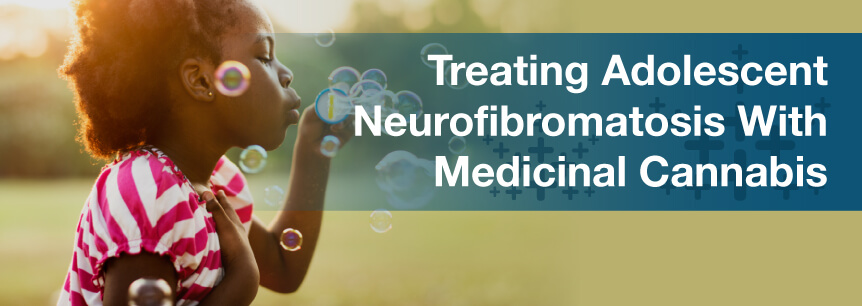
About half of all patients with neurofibromatosis (NF) inherited it. The most common kind of NF, neurofibromatosis 1 (NF1), appears at an early age and can affect the patient in their teens. A rarer type called neurofibromatosis 2 (NF2) can manifest in the later teens. Being a teen is stressful enough already, let alone when you have a chronic disease.
NF treatment can involve invasive surgery and potent drugs. But what if your teen could use a natural alternative? Medical marijuana can work as a holistic treatment for NF, and it’s much safer for adolescents than you may think.
Patients with NF have symptoms that can vary in intensity. Some folks have very minor symptoms that have little impact on the quality of their lives. But, others can deal with serious issues like cancerous tumors.
Moderate NF symptoms include spots or bumps on the skin, learning disabilities and structural deformities. But, when NF tumors put pressure on important parts of the body like the optic nerve, a patient could face vision loss and other severe risks. And when the tumors become cancerous, immediate action must be taken.
Evidence shows folks with NF could already have higher stress and depression levels — not to mention lower self-esteem. Teens could also deal with even more emotional issues. Peer pressure, discrimination and a feeling of not “fitting in” can make NF more stressful.
Not everyone with NF has to get treatment, such as those who only deal with minor skin spots. However, more severe cases call for intensive measures. NF treatments include:
Many of these options involve dangerous side effects. For instance, strong painkillers like narcotics and opioids are addictive, and cancer treatments like chemotherapy wreak havoc on your body. Sometimes, you can’t avoid these treatments, but what if you could reduce the dosage or side effects?
Medicinal cannabis works to relieve pain, nausea and mental health problems. It can reduce the pain caused by tumor pressure and cancer treatments. Patients who have chronic nausea from chemotherapy or radiation can use it to lower their symptoms, and patients with depression or anxiety resulting from the emotional stress can use it to feel better.
As the parent of a teen with NF, you want the best for your child. You might feel uncomfortable with the concept of your teen using cannabis because of negative attitudes — doesn’t it cause more harm than good?
It turns out that marijuana medicine has the same benefits of standard medication, but you have more control over your child’s treatment plan when they take medical cannabis. By using the right type of medicine, you can completely avoid any concerns you have.
If your teen uses a medication with only the compound cannabidiol (CBD), you don’t have to worry about them getting “high” off of their medicine. Tetrahydrocannabinol (THC) is the compound that causes marijuana’s psychoactive effects. Meanwhile, CBD will make your child feel sleepy and relaxed without any mental impairment.
Plus, your teen doesn’t have to smoke their medical cannabis — in fact, many states outlaw smoking cannabis medicine. Medical marijuana can come in the form of oil or capsules. So, your child can take their medicine without harming their lungs.
A professional trained in medical marijuana treatment can help you decide what’s best for your child. Schedule an appointment with a cannabis-certified physician, or contact a medical dispensary today.